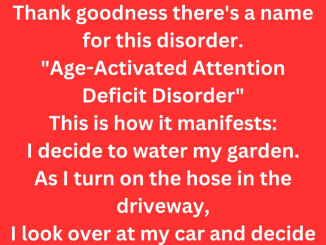Diabetes is a silent invader. It doesn’t always announce its arrival loudly, but there are subtle signs your body gives, even while you’re asleep, to warn you of its presence. Recognizing these signs early can make a massive difference in managing or even preventing complications. If you’re noticing unusual symptoms at night, it might be time to take a closer look.
1. Feeling Thirsty at Night? Don’t Ignore It

Waking up parched and desperate for a glass of water isn’t just an inconvenience—it could be your body’s way of signaling a deeper issue. Persistent nighttime thirst is one of the hallmark signs of diabetes.
Why does this happen? Diabetes affects your body’s ability to manage fluid levels. High blood sugar causes your kidneys to work overtime to flush out excess glucose, leading to dehydration. The result? A constant need to rehydrate. If you find yourself repeatedly waking up to drink water and still feeling thirsty, don’t dismiss it as a one-off. It’s worth checking your blood sugar levels.
2. Frequent Nighttime Bathroom Trips
Let’s be real—most of us would rather sleep than make trips to the bathroom in the middle of the night. But if you’re waking up multiple times to urinate, it could be more than just drinking too much water before bed.
When blood sugar levels are high, your body tries to eliminate the excess through urine. This not only increases the frequency of bathroom visits but also disrupts your sleep, leaving you feeling groggy and unrested. Unless you have other conditions, like kidney issues or an overactive bladder, frequent nighttime urination could be a red flag for diabetes. Keep an eye out, especially if this habit develops suddenly or without a clear explanation.
3. Anxiety, Restlessness, and Sweating While Sleeping
Your body should feel calm and relaxed during sleep, but diabetes can turn that peace into chaos. If you find yourself waking up feeling anxious, restless, or drenched in sweat, it could point to low blood sugar, also known as hypoglycemia.
Why does this happen? For people with diabetes, blood sugar levels can drop significantly during sleep. Your body’s demand for glucose doesn’t stop, even when you’re resting. When glucose levels dip too low, it triggers an adrenaline response, causing restlessness, sweating, and sometimes even nightmares. If these episodes are frequent, it’s time to consult a healthcare professional to get your blood sugar levels in check.
4. Persistent Hunger Before Bed

Ever felt ravenous late at night, even after a hearty dinner? If this happens regularly, it’s not just an innocent case of the munchies—it could be your body’s way of signaling an inability to properly metabolize sugar.
Here’s the science: diabetes interferes with your body’s insulin production and sugar metabolism. This means the glucose in your bloodstream isn’t effectively converted into energy, leaving you feeling hungry, tired, and weak—even if you’ve eaten enough. If you often feel drained and reach for snacks before bed, it might be time to see your doctor and check your blood sugar levels.
Why You Shouldn’t Ignore These Signs
Let’s face it: life gets busy, and it’s easy to brush off symptoms as minor inconveniences. But ignoring these nighttime signs can have long-term consequences. Left unchecked, diabetes can lead to serious complications such as nerve damage, heart disease, and kidney issues. Early detection is key, and these nighttime warnings could be the first step in catching diabetes early.
What to Do If You Notice These Symptoms
If any of these signs sound familiar, don’t panic—but don’t wait, either. Here’s what you can do:
- Schedule a Check-Up: A simple blood sugar test can provide clarity and determine whether diabetes is the cause of your symptoms.
- Track Your Symptoms: Keep a journal of when these signs occur and how often. This can help your doctor make a more accurate diagnosis.
- Adopt Healthy Habits: Even before a diagnosis, small lifestyle changes like eating a balanced diet, exercising regularly, and reducing stress can improve your overall health and help manage blood sugar levels.
Prevention Tips: How to Stay Ahead of Diabetes

Prevention is always better than cure. Here are a few practical tips to reduce your risk of developing diabetes:
- Eat a Balanced Diet: Focus on whole grains, lean proteins, and plenty of vegetables. Cut back on sugary snacks and processed foods.
- Stay Active: Regular physical activity helps your body regulate blood sugar and maintain a healthy weight.
- Prioritize Sleep: Quality sleep supports overall health and reduces stress, both of which are essential for preventing diabetes.
- Monitor Your Health: Regular check-ups can help catch warning signs early, giving you a better chance to manage or prevent the disease.
Conclusion
Your body has a remarkable way of warning you when something’s wrong, even while you sleep. Thirst, frequent bathroom trips, restlessness, and hunger at night might seem like minor nuisances, but they could be signs of diabetes knocking at your door.
The good news? Early detection and simple lifestyle changes can make a world of difference. If these symptoms resonate with you, don’t hesitate to consult a doctor. And remember, taking care of yourself isn’t just about managing symptoms—it’s about living your best, healthiest life.
Stay alert, stay healthy, and don’t ignore the signs. After all, your body is always talking—you just have to listen.


